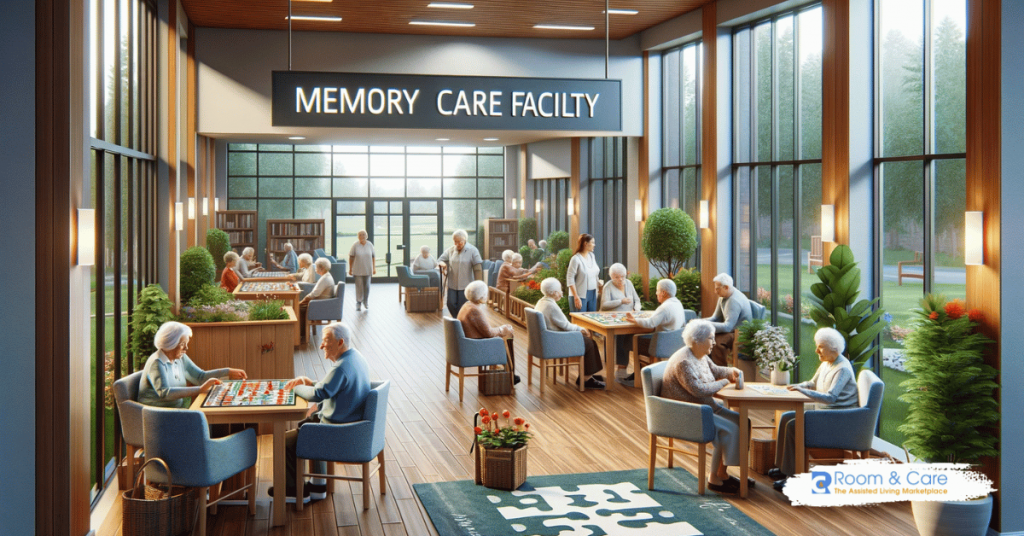Charlotte Memory Care: Professional Assisted Living for Memory Assistance
Charlotte Memory Care: Professional Assisted Living for Memory Assistance
Blog Article
What to Anticipate in Memory Care: A Detailed Overview to In-Home Services
Browsing the landscape of memory treatment for an enjoyed one can be a complicated and psychologically billed experience. As family members involve terms with the difficulties of looking after a person with amnesia, the world of in-home services offers a lifeline of assistance and specialized treatment. Understanding what to prepare for in memory care is important for ensuring the health of both the individual with memory impairment and their caretakers. From tailored day-to-day activities to security methods and caregiver sources, this overview intends to lose light on the thorough spectrum of solutions offered to those starting the trip of in-home memory care.
Daily Regimens and tasks
Participating in organized everyday tasks and routines is a fundamental component of offering high quality treatment for individuals in memory care facilities. These tasks are carefully designed to provide to the specific needs of citizens with cognitive impairments, such as Alzheimer's condition or mental deterioration. Daily routines play a crucial role in preserving a sense of familiarity, safety and security, and function for people in memory treatment.

Additionally, day-to-day routines aid individuals in memory care centers to feel even more oriented and much less nervous. Consistency in schedules and tasks can lower complication and anxiety, offering a sense of security and convenience. Caregivers and team member play an important duty in assisting in these activities, guaranteeing that each resident obtains customized and caring treatment tailored to their unique preferences and abilities.
Specialized Treatment Provider
Within memory treatment facilities, specialized treatment solutions are necessary to address the special requirements and challenges encountered by people with cognitive problems such as Alzheimer's illness or mental deterioration. These solutions are developed to supply customized assistance that satisfies the details requirements of residents managing memory loss. Specialized treatment solutions in memory treatment centers frequently include personalized care plans, support with activities of day-to-day living, medicine management, and behavior modifications aimed at enhancing lifestyle and reducing distress.
Furthermore, memory care facilities commonly use organized programs and activities particularly made to stimulate cognitive function and promote social involvement among citizens. These tasks may consist of memory-enhancing workouts, sensory stimulation treatments, and reminiscence therapy sessions. Additionally, specialized care services typically include normal tracking of citizens' wellness and wellness by qualified personnel members who are equipped to deal with the one-of-a-kind difficulties related to cognitive decrease.
Safety Procedures and Setting
Implementing stringent precaution and developing a secure environment are vital priorities in memory care facilities to guarantee the wellness and protection of citizens with cognitive problems. Security in memory care starts with protected building layout, including secured doors and monitored entrances to protect against homeowners from roaming outside not being watched. Additionally, centers commonly have security system and monitoring electronic cameras to monitor locals and react quickly to any kind of emergency situations. Inside, the setting is very carefully intended to lessen threats, with handrails, grab bars, and non-slip floor covering to stop drops. Furnishings is set up to help with simple navigating, and potentially unsafe products are secured away or removed. Team member get specialized training in managing emergencies, de-escalating challenging habits, and guaranteeing the safety of residents in all times. Regular safety evaluations are performed to recognize and resolve any kind of possible threats quickly. By focusing on safety procedures and maintaining a secure setting, memory care facilities purpose to supply a safety and reassuring setup for people with cognitive problems.
Interaction and Interaction Techniques
With an emphasis on cultivating meaningful communications and improving a fantastic read high quality of life, reliable communication techniques play an important function in sustaining people in memory care centers. Interaction in memory care includes understanding the unique needs of homeowners that might have cognitive disabilities like mental deterioration.
Interaction techniques are likewise important in memory care, assisting homeowners stay active, stimulated, and connected to their environments. Activities like songs treatment, art classes, reminiscence sessions, and our website sensory stimulation can spark memories, improve state of mind, and promote socialization. Customizing tasks to each individual's passions and capacities is essential to promoting engagement and a sense of achievement. Additionally, including acquainted objects, photos, and songs from the person's past can supply convenience and stimulate positive memories. By prioritizing personalized communication and involvement techniques, memory care facilities can improve the total wellness and top quality of life for their homeowners.
Caregiver Support and Resources
Offered the crucial role caretakers play in executing reliable interaction and involvement methods for residents in memory care centers, giving ample support and resources is important to make certain the health of both the caregivers and the people under their treatment. Caretakers in memory treatment settings commonly face unique obstacles that can affect their physical and psychological well-being. To address these obstacles, different support group and resources are available to assist caregivers in supplying the most effective possible care.
One necessary form of support is caregiver education and training programs. These programs equip caregivers with the necessary skills and knowledge to efficiently manage the symptoms and behaviors related to amnesia. In addition, support system offer caretakers the chance to get in touch with others that are experiencing comparable difficulties, supplying a feeling of community and understanding.

Conclusion

Engaging in organized everyday tasks and regimens is a fundamental element of providing top quality care for individuals in memory treatment facilities.Within memory treatment facilities, specialized care solutions are important to address the special demands and difficulties dealt with by individuals with cognitive disabilities such as Alzheimer's illness or dementia. Specialized treatment solutions in memory treatment centers commonly include individualized care plans, assistance with activities of day-to-day living, drug monitoring, and behavior treatments aimed at improving high quality of life and lessening distress.
Provided the crucial role caretakers play in applying reliable interaction and involvement approaches for citizens in memory treatment centers, supplying adequate assistance and sources is crucial to make certain the health of both the caregivers and the individuals under their treatment. Daily activities, specialized treatment services, safety and security actions, communication methods, and caregiver assistance are vital parts of at home memory treatment.
Report this page